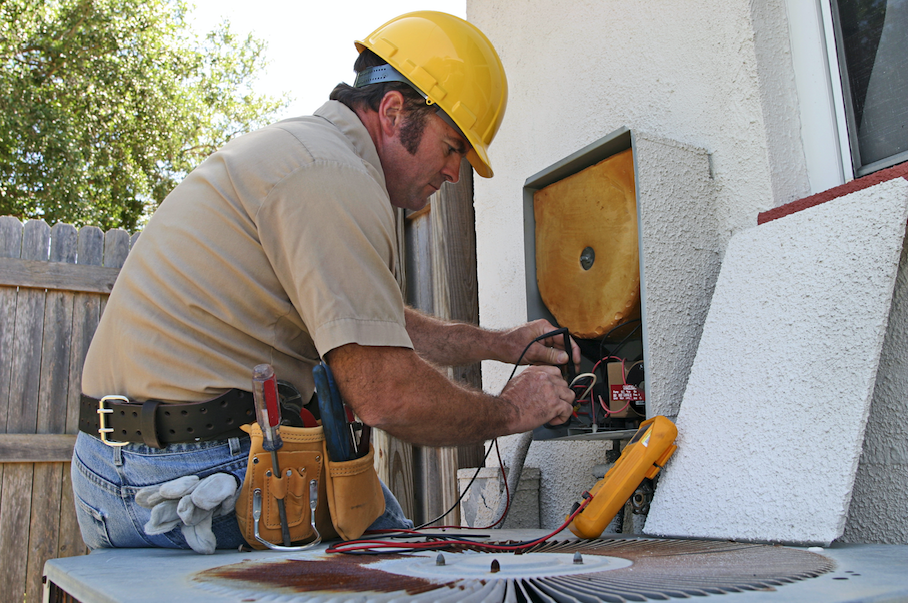
Ever wonder what it is that your AC tech actually does when doing the maintenance on your unit? Here you have it – the complete air conditioner and HVAC checklist.
What we check when we inspect the indoor unit
1. Air Filters
Change your air filter monthly or bi-monthly. Things like smoking and pet dander and fur can add to the potential clogging of the filter so it becomes even more vital if you are a smoker or a pet owner.
2. Clean The Exterior
Wiping down the units outer shell can help keep dirt from creeping inside.
3. Burner Assembly
A small brush and vacuum can be used to clean the burner assembly if it is needed.
4. Blower Assembly
The blower wheel and motor, as well as their housing, kept clean can help ensure proper air circulation.
5. Ductwork
Check your ductwork for leaks which can cause your bill to skyrocket.
6. Combustion Blower Housing
Lint can accumulate in the combustion blower housing. Make sure to clean it regularly.
7. Evaporator Coil
Check the drain pan and do a flush and algae treatment to condensate the drain lines. Replace components as necessary.
8. Electrical Components
The electrical disconnect box and wire connections should be inspected and tightened as necessary.
9. Heat Exchanger and Heating Elements
Inspect both. If there is damage – replace it.
10. Ignition System
Clean and adjust as necessary.
11. Motor
If your HVAC unit has an aging motor, it will need to be lubricated. You should also ensure the fan’s belt is still good.
12. Safety Devices
You can perform inspection while it is running. Making sure all safety functions are operating properly.
13. Bulb Temperatures
Bulb temperatures should be checked both indoor and outdoor.
14. Carbon Monoxide
Consider installing a carbon monoxide detector to ensure your home’s safety.
15. Gas Pressure
Ensure the gas line and gas manifold are operating at the correct gas pressure.
16. Odors
Check for unusual odors. If you smell anything out of the ordinary call a professional.
17. Startup
Ensure the unit starts up normally and begins working immediately.
18.Shutoff
Check that your HVAC unit shuts off correctly.
19. Vents
Check your vents to ensure they are blowing air properly. If any aren’t, it could indicate a blockage. If not, there is likely a blockage.
20. Thermostat
Make sure your thermostat is operating correctly and the temperature is regulating.
Inspecting the Outdoor Unit – what we check
21.The Cabinet
Clear out any debris around the housing.
22. The Base Pan
Look at the base pan to check that its drains have no blockages.
23. The Coils
Keeping your coils clean is vital to the longevity of your unit. Clear any dirt, dust, leaves or built up debris.
24. Compressor and Tubing
Makes sure they do not show any damage, if they do – replace them.
25. The Control Box
This includes contactors, circuit boards and several other components you’ll see in the box. Check them to make sure they are all connected properly and have no damage visible.
26. Fan Motor and Blades
Inspect motor and blades for any wear and tear. Check the belt tension if necessary.
27. Refrigerant
It is important to the function of your system to keep the refrigerant level within range. Otherwise, your unit will have to work harder than necessary jacking up your bill and shortening its lifespan.
Regular maintenance keeps your HVAC in good shape and prolongs the life of the unit itself. Eventually, all systems do need to be replaced. If yours is over 10 years old the newer units are now much more energy efficient. Purchasing a new one could save your money in the long run.
Whether you are ready for a new AC or just wanting to schedule service on your current model All Day Air Cooling and Heating is here for you. Just give us a call 239-357-0727 or visit us online at www.alldayaircooling.com.
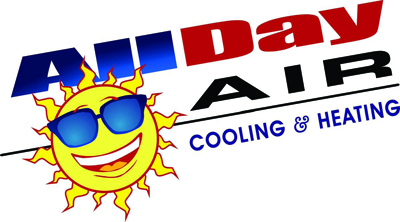


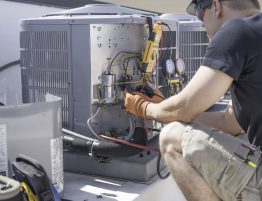
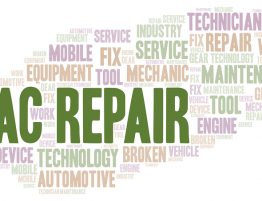
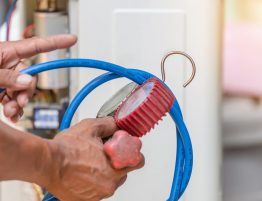
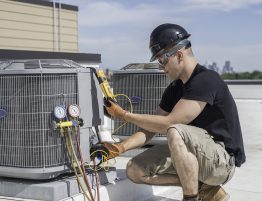
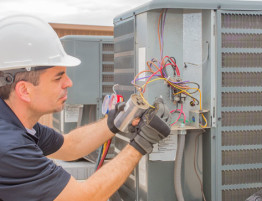

Write a comment:
You must be logged in to post a comment.